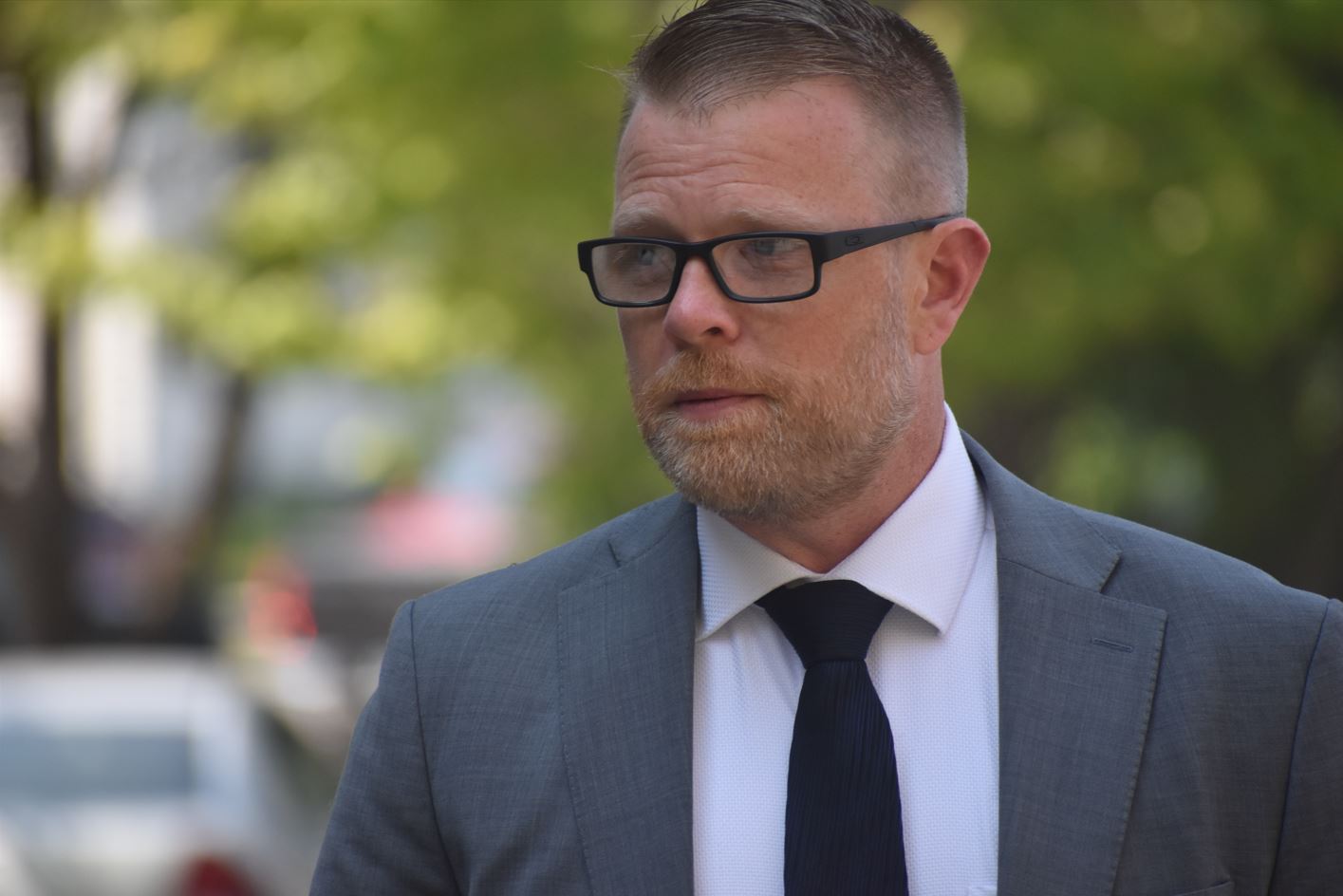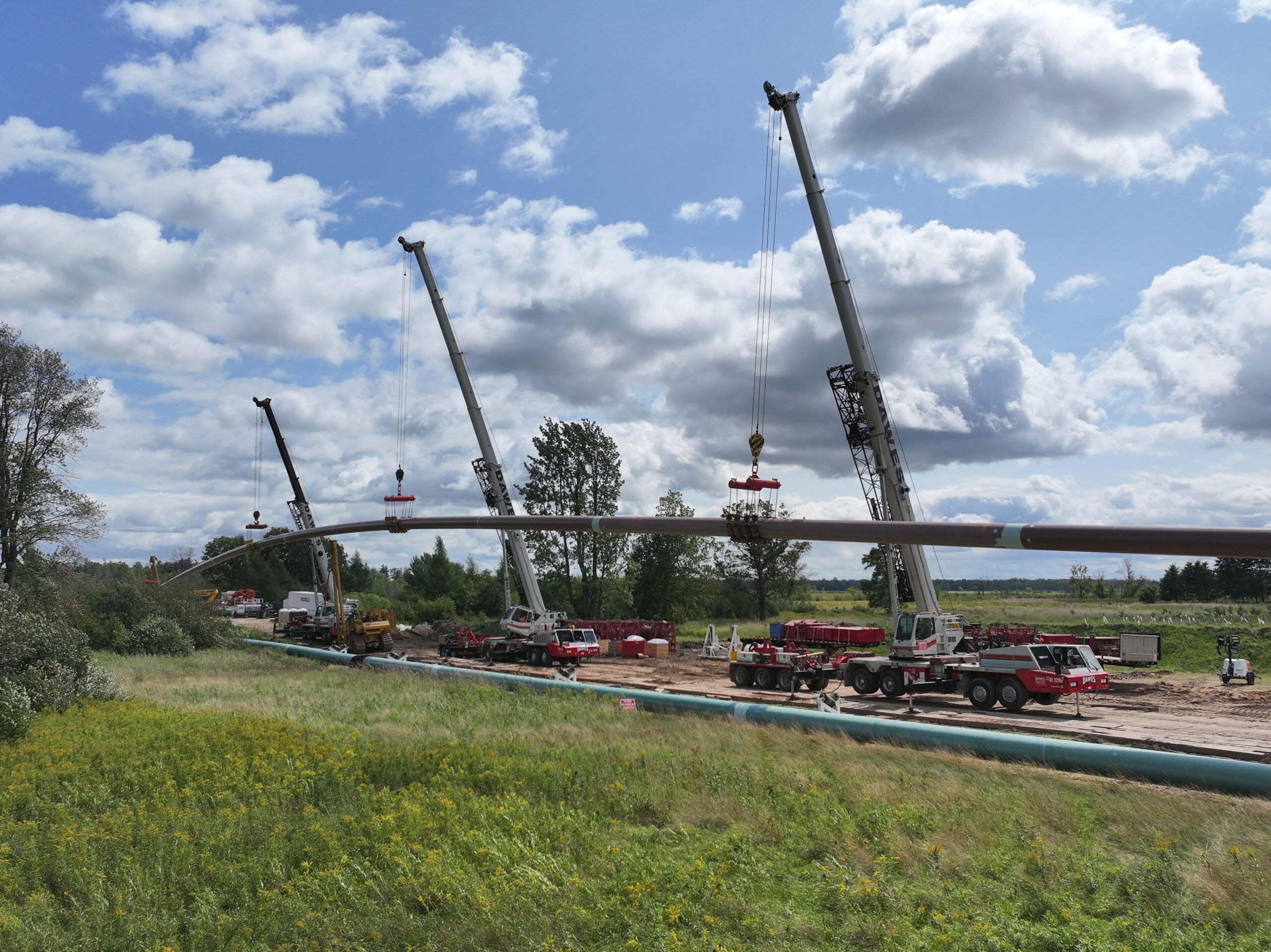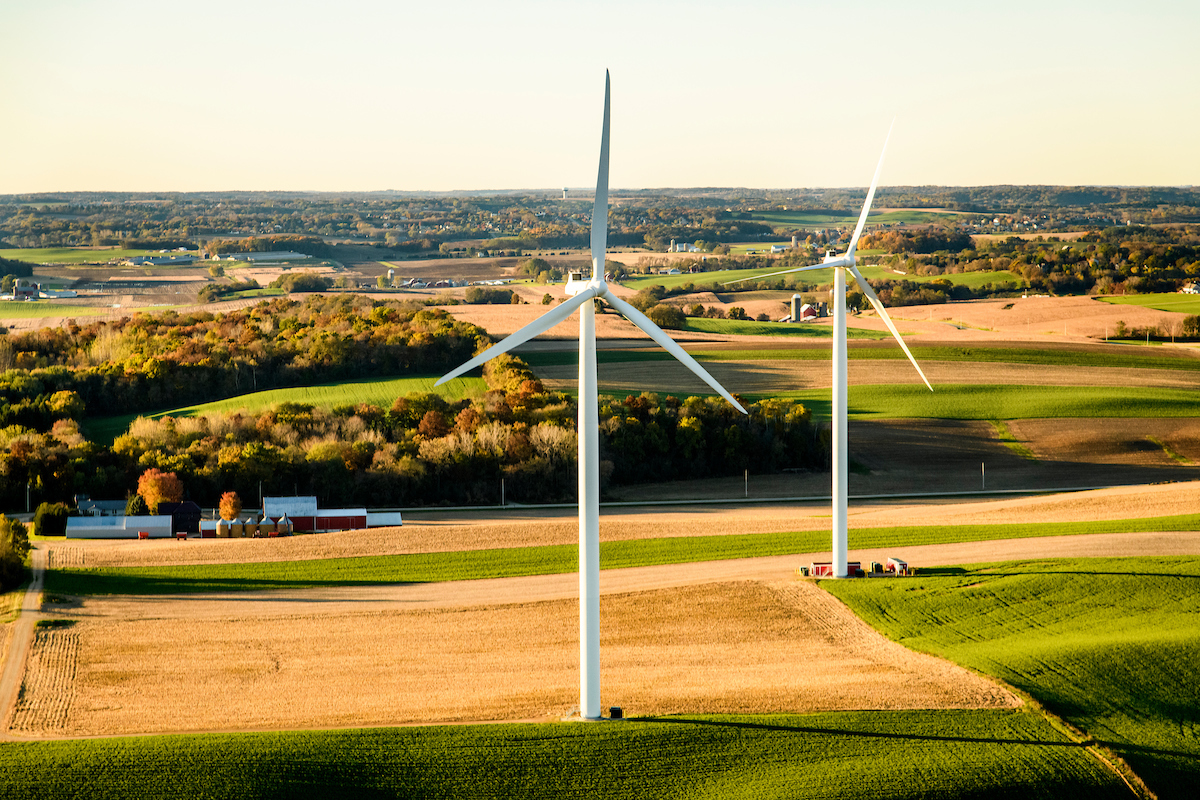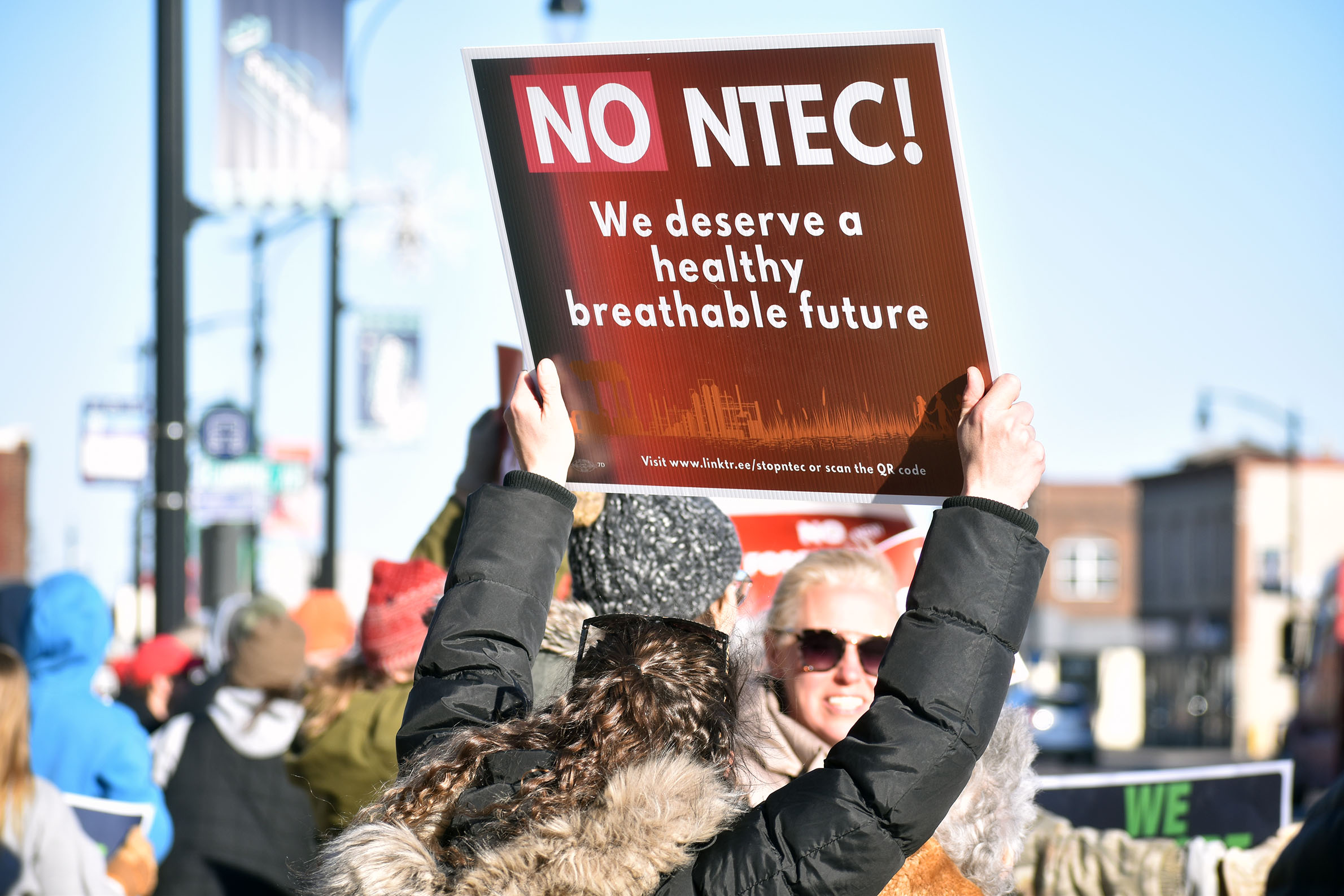The mayor of Superior is asking Wisconsin utility regulators to revisit their approval of a roughly $700 million natural gas plant that’s planned to be built in the city.
In a letter filed on Jan. 2, Superior Mayor Jim Paine asked the Public Service Commission, or PSC, to conduct a new review of the proposed Nemadji Trail Energy Center.
Several utilities want to build the 625-megawatt plant as part of plans to shift away from coal and invest in renewable energy. They include La Crosse-based Dairyland Power Cooperative, Minnesota Power in Duluth and North Dakota-based Basin Electric Power Cooperative.
News with a little more humanity
WPR’s “Wisconsin Today” newsletter keeps you connected to the state you love without feeling overwhelmed. No paywall. No agenda. No corporate filter.
The project’s owners say the plant is critical for providing reliable, affordable power when energy from wind and solar resources are unavailable. Indigenous and environmental groups have long-opposed the project and mounted multiple legal challenges over its approval by regulators in Wisconsin and Minnesota.
In 2020, the PSC issued a certificate to utilities, granting them approval to build the power plant. At the time, Paine said local leaders supported the project due to the economic benefits of construction and shifting to clean energy. Now, he said, many local officials oppose it.
“The project, the site, the community, and the world have changed in meaningful ways since January of 2020. The final decision of the PSC is no longer a true representation of the facts surrounding the construction of (the Nemadji Trail Energy Center),” Paine wrote. “The citizens of Superior and Wisconsin deserve further review of this controversial and potentially harmful project.”
The city’s leader said changes to the project warrant further review, including modifications to its design, ownership and effects on tribal lands.
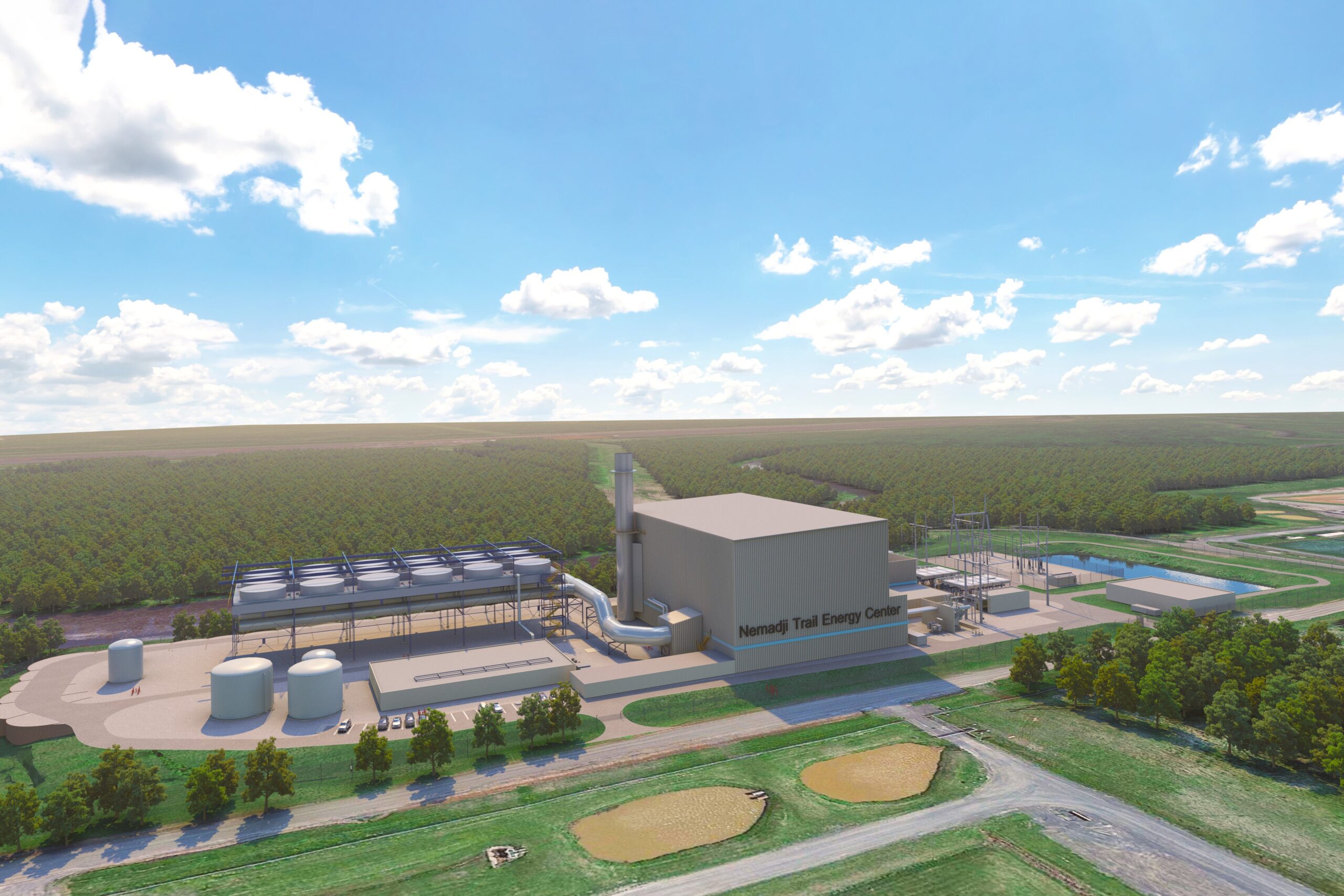
Paine noted the site is about 500 feet from a mass grave that holds the remains of tribal ancestors of the Fond du Lac Band of Lake Superior Chippewa. The remains were buried there more than 100 years ago following their removal from Wisconsin Point to make way for an ore dock that was never built.
Superior’s mayor also added that advancements in technology and federal funding for clean energy development under the Bipartisan Infrastructure Law have made it possible to pursue renewable resources, rendering new fossil fuel plants “obsolete.” Paine also questioned whether the city would be able to enforce its own ordinances related to the plant, noting state law preempts enforcement of local regulations for approved projects. The city would have to amend its zoning code and vacate streets for the plant, and Paine said the city is unlikely to approve those changes.
A PSC spokesperson said the commission is reviewing the mayor’s request. The commission hasn’t acted on a similar request made by environmental groups last year.
Utilities want to break ground on the plant next year. They estimate it would create more than 350 jobs during construction, as well as 25 full-time positions. The project’s owners and labor groups say the project will bring a $1 billion economic impact over 20 years.
Dairyland Power is seeking a loan from the Rural Utilities Service to pay for half the plant’s cost. Last month, the federal agency found the plant won’t have significant effects on the environment as part of its latest review of the project. The agency had previously issued a similar finding, but it revisited the decision after environmental and Indigenous groups petitioned for further review.
Utilities have said the plant would cut carbon emissions by 964,000 tons each year. In its latest finding, the Rural Utilities Service found the plant would cut carbon emissions on the western portion of the Midwest grid by more than 800,000 tons each year compared to keeping coal plants online.
The agency’s interim estimates also showed the facility would produce around $2.5 billion in climate damages. Even so, regulators said the plant would reduce climate impacts by about $1.2 billion as it replaces older coal facilities.
Environmental and Indigenous groups have challenged the agency’s assessment of the plant’s effects on climate change and tribal communities.
The Sierra Club and Clean Wisconsin are appealing a Dane County judge’s ruling last year that upheld the project’s approval by the Public Service Commission. That litigation is still pending.
Utilities hope to bring the plant online in 2028.
Wisconsin Public Radio, © Copyright 2026, Board of Regents of the University of Wisconsin System and Wisconsin Educational Communications Board.

